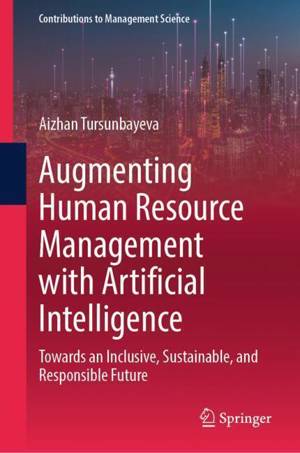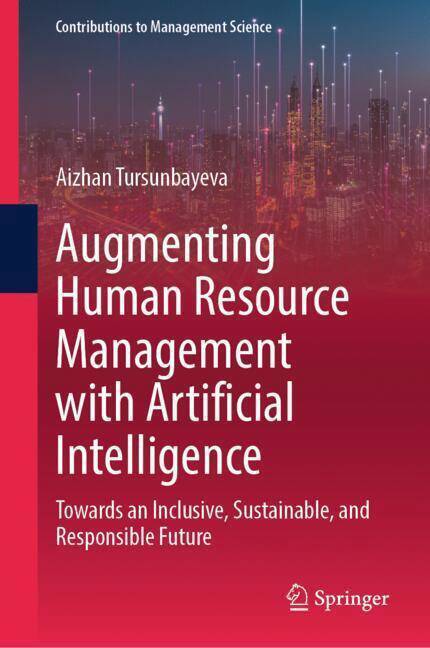
- Afhalen na 1 uur in een winkel met voorraad
- Gratis thuislevering in België vanaf € 30
- Ruim aanbod met 7 miljoen producten
- Afhalen na 1 uur in een winkel met voorraad
- Gratis thuislevering in België vanaf € 30
- Ruim aanbod met 7 miljoen producten
Augmenting Human Resource Management with Artificial Intelligence
Aizhan TursunbayevaOmschrijving
The potential of Artificial Intelligence (AI) to reshape Human Resource Management (HRM) practices is profound, but it also presents challenges that require careful consideration, particularly in terms of ethics, inclusivity, and sustainability. However, knowledge about whether and how this transformation is actually occurring remains limited. This book aims to provide a theoretically informed and empirically grounded examination of AI's role in shaping the future of HRM and work.
The book explores HRM technologies using a configurational approach, which views HRM practices as a blend of operational, relational, and transformational elements. It consistently addresses the dual perspectives on AI-its transformative potential and the concerns surrounding its disruptive impact on the future of work and management. In doing so, the book draws on ongoing original research, including an analysis of vendors' value propositions and insights from scholars and experts. Real-life applications of AI in HRM are also thoroughly covered, offering insights into algorithmic management, AI-driven relational HRM configurations, and AI-augmented HRM.
The book dedicates significant attention to the ethical implications of AI and how they can be addressed through Responsible AI principles. Ultimately, it establishes a framework for future research and practice, serving as a crucial reference for scholars, practitioners, and policymakers.
Specificaties
Betrokkenen
- Auteur(s):
- Uitgeverij:
Inhoud
- Aantal bladzijden:
- 149
- Taal:
- Engels
- Reeks:
Eigenschappen
- Productcode (EAN):
- 9783031752650
- Verschijningsdatum:
- 2/01/2025
- Uitvoering:
- Hardcover
- Formaat:
- Genaaid
- Afmetingen:
- 155 mm x 235 mm

Alleen bij Standaard Boekhandel
Beoordelingen
We publiceren alleen reviews die voldoen aan de voorwaarden voor reviews. Bekijk onze voorwaarden voor reviews.











